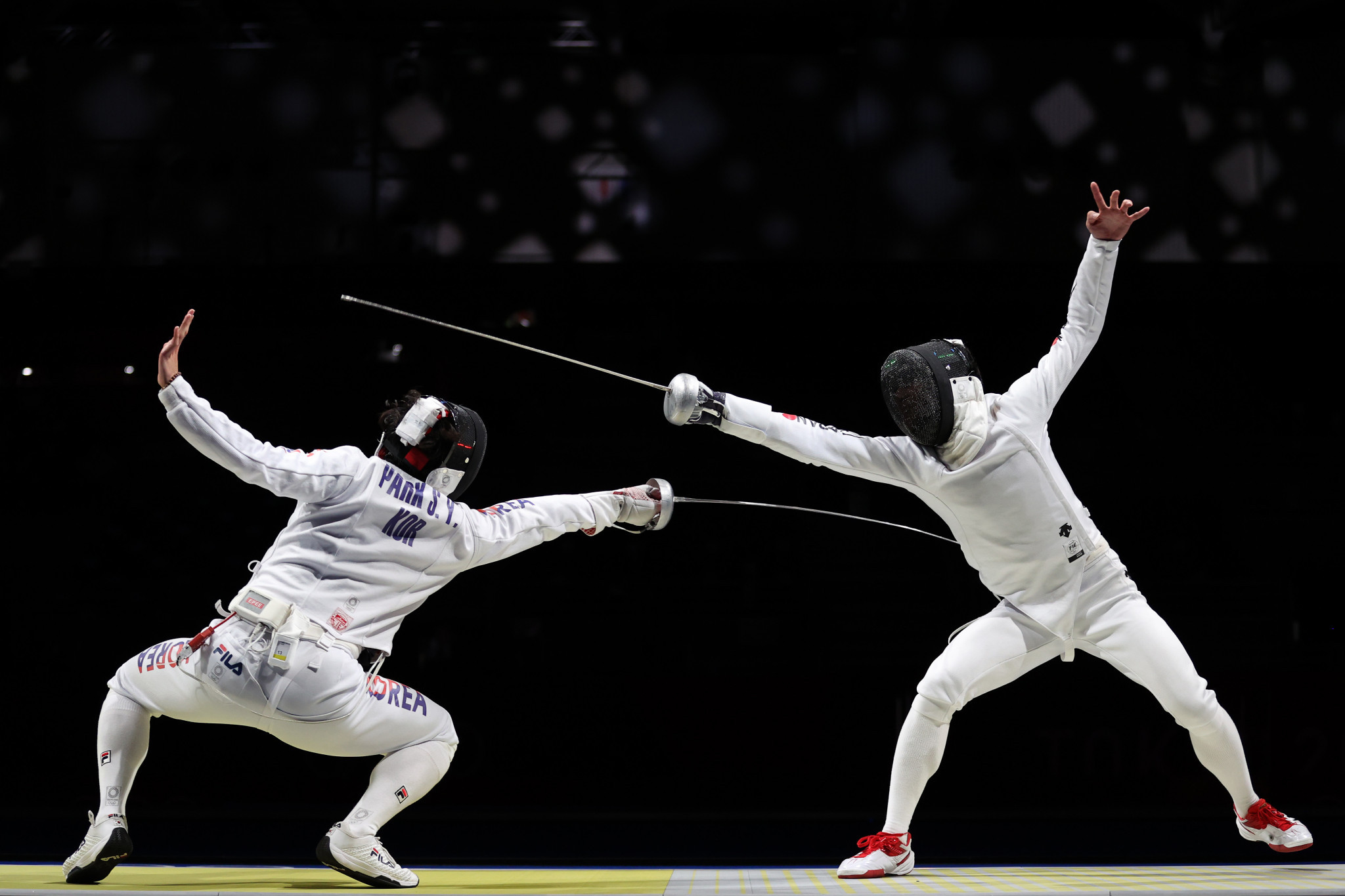European tradition becomes Eastern discipline as Asians rake up medals in fencing
After two days of competition, Asian fencers take home three out of four gold medals. This sport is increasingly popular in South Korea and Japan, while it is set to become Hong Kong’s national sport. Vivian Kong Mai-wai's victory in the women's epee follows that of Edgar Cheung Ka-long, who emerged as Hong Kong’s star with gold in the men's foil at Tokyo 2020.
Paris (AsiaNews) – After two days of Olympic competition, Asian countries claimed three out of four gold medals in fencing.
Vivian Kong Mai-wai, from Hong Kong, won in the women's epee, while South Korea's Oh Sang-uk took the top spot in the men's sabre and Japan's Kano Koki came first in the men's epee.
The fourth medal went to Lee Kiefer, from the United States, who won again in women's foil. Although American, Kiefer is Asian in origin since her mother, Teresa, was born in the Philippines and emigrated to the United States when she was a child.
The fencing competitions will continue until 4 August with several more medals up for grabs.
But from a traditionally European discipline (originally practiced mainly in Italy and France and later in Hungary), fencing has now become truly international. And it has become very popular in Asia, at least for a decade.
South Korea has won at least one gold medal in fencing in every edition since the 2012 London Games, and Oh Sang-uk was a three-time world champion before winning gold in Paris.
South Korea’s men's team arrived in France with a new line-up, but with a silver medal from the World Cup in Budapest in March.
Gu Bon-gil, Oh Sang-uk, Park Sang-won, and Do Gyeong-dong will now attempt the feat of winning a third consecutive gold medal for their country in the men's team sabre (a competition that was not included at Rio 2016), a goal so far achieved only by Hungary, which dominated the discipline from 1928 to 1960, winning seven consecutive titles.
After the silver medal in Tokyo 2020, South Korea’s women's epee team is also aiming for Olympic gold.
Fencing is also growing in popularity in Japan, thanks to recent successes (in Tokyo, Kano Koki won a gold medal in the team competition), but more slowly.
If South Korea ranks fifth in the world in terms of popularity of the discipline, Japan is eleventh.
According to some observers, it is no coincidence that fencing is increasingly popular in countries where various types of martial arts originated, including, for example, Japanese kendo, a combat sport in which bamboo swords are used in lieu of the traditional samurai katanas.
The story is different for Hong Kong. Three years ago the former British colony had amazed the world with its first ever Olympic gold in fencing. In the final, Edgar Cheung Ka-long beat the reigning foil champion, Daniele Garozzo from Italy, becoming a national star overnight.
History can repeat itself since Vivian Kong Man-wai took the gold two days ago against Frenchwoman Auriane Mallo in the epee.
Raised in Canada between the ages of two and six, Kong repeatedly turned down offers to compete for Canada and overcame two cruciate ligament injuries before arriving in Paris.
Fencing was introduced in Hong Kong when the territory was under British rule, but the former colony raked up its first international victories in the late 1990s and early 2000s.
However, it was not until the 2010 Asian Games that the city of 7.5 million emerged as a new regional power, when Hong Kong fencers won seven medals.
This was made possible by government promotional activity in schools, as it is done in mainland China.
According to Yeung Wing-sun, president of the Hong Kong Fencing Association, the number of people interested in the discipline rose by 30 per cent after Cheung's victory in 2021.
For Lobo Louie Hung-tak, senior lecturer of health and physical education at the Education University of Hong Kong, fencing could become the national sport.
In fact, the local Education Bureau has proposed to include it under the grading rubric for secondary school allocation.







.png)











